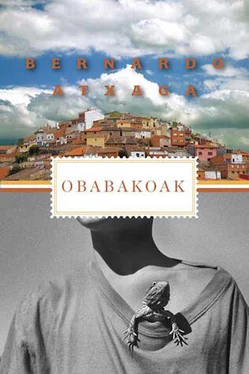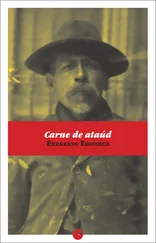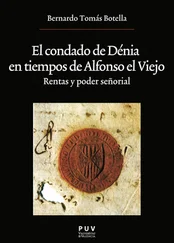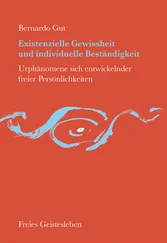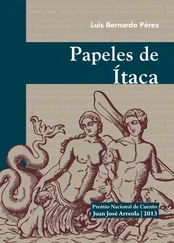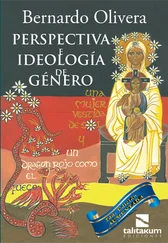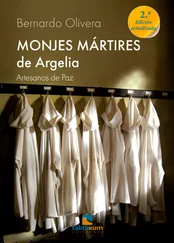Bernardo Atxaga - Obabakoak
Здесь есть возможность читать онлайн «Bernardo Atxaga - Obabakoak» весь текст электронной книги совершенно бесплатно (целиком полную версию без сокращений). В некоторых случаях можно слушать аудио, скачать через торрент в формате fb2 и присутствует краткое содержание. Год выпуска: 2010, Издательство: Graywolf Press, Жанр: Современная проза, на английском языке. Описание произведения, (предисловие) а так же отзывы посетителей доступны на портале библиотеки ЛибКат.
- Название:Obabakoak
- Автор:
- Издательство:Graywolf Press
- Жанр:
- Год:2010
- ISBN:нет данных
- Рейтинг книги:3 / 5. Голосов: 1
-
Избранное:Добавить в избранное
- Отзывы:
-
Ваша оценка:
- 60
- 1
- 2
- 3
- 4
- 5
Obabakoak: краткое содержание, описание и аннотация
Предлагаем к чтению аннотацию, описание, краткое содержание или предисловие (зависит от того, что написал сам автор книги «Obabakoak»). Если вы не нашли необходимую информацию о книге — напишите в комментариях, мы постараемся отыскать её.
Obabakoak
The Observer
Obabakoak — читать онлайн бесплатно полную книгу (весь текст) целиком
Ниже представлен текст книги, разбитый по страницам. Система сохранения места последней прочитанной страницы, позволяет с удобством читать онлайн бесплатно книгу «Obabakoak», без необходимости каждый раз заново искать на чём Вы остановились. Поставьте закладку, и сможете в любой момент перейти на страницу, на которой закончили чтение.
Интервал:
Закладка:
The subject of hunting took on an unusual grandeur on their lips. It seemed more an excuse to speak of man’s solitude at night, lashed by icy winds… or to describe a man’s sadness on returning home with his gamebag empty, after a whole day spent combing the forest, or simply as an excuse to recall their lost youth, for some of them, Agustín the shepherd for example, no longer had the strength to go after boars and wolves.
And beneath all the many variations on a theme, like a guiding thread, lay the idea of struggle. Not just of man against beast, but also among the beasts themselves. Snake against bird, weasel against rabbit, the bear against everyone else. It was the law— dura lex, sed lex —of nature, a law that not even man could escape.
“Do you know how a bear kills its prey?” the owner of the bar and one of the best hunters in the village once asked me.
I said that I didn’t.
“It kills with one blow of its paw. Just one. And do you know what it aims for?”
Again, I didn’t.
“It goes for the head. One blow and it’ll rip your brains out. Just a single clean blow. It makes no odds whether it’s attacking a calf or a man. It always goes for the head.”
Before continuing, he crossed his arms and leaned on the counter as he always did before launching into a story.
“I’ve only ever once seen a bear. Someone in the village killed it and it was left on display in the main square for a whole morning. When you see a bear close up like that, that’s when you understand what a bear is. Every one of its claws is sharp as a dagger. The same goes for its teeth. It’s a sight I’ll never forget.”
“The man who killed it died three days later,” added Agustín.
“Really? Why was that? I was only a child then so I don’t remember,” said the owner, surprised.
“I don’t know whether it’s true or not, but people say he died of shock. Apparently by the time he came back from the forest he’d gone a bit soft in the head. Just the fact that he’d managed to kill it, I suppose. Though it must be a tremendous shock suddenly coming face-to-face with a bear.”
“A shock? But, Agustín, how can you say that? I happen to know that he’d been after that bear for over a month,” intervened the group sceptic.
“You be quiet, you don’t know anything about it!” said the bar owner, cutting him short. “What’s that got to do with anything? I spent five years hunting wolves… and what do you think happened when I finally caught up with them? My hair stood on end, that’s what, because I never knew, at least not exactly, just when I might find them. That’s where the surprise comes in, that’s what shocks you.”
The sceptic cast doubt on the owner’s argument, the latter produced another anecdote as an example, Agustín chimed in with something else he remembered, I asked a question… and so it went on into the early hours.
In the summer, we’d carry one of the tables outside and enjoy leisurely conversations beneath the stars, each of us with a beer in one hand. And toward August, when the scent of newly harvested wheat wafted to us on the breeze, everyone in the group became more than usually loquacious and cheerful. The hunting season was at hand.
5. You reached the highest point of the village by walking up the hill where I lived, at the top of which villagers had built their wine stores or bodegas. From there, looking down to the right, an observer could see the village rooftops and the church’s thick, cracked walls, while ahead and to the left, over a distance of some eight miles, stretched a plain bare of trees with the River Pisuerga in the background. Behind you lay the two high plateaus that formed a deep valley where they met and extended as far as the Astudillo forest.
Punctually each day, in straggling lines and small groups, the retired men of the village made their way up there to watch the peaceful evening hours pass by. As nearly all of them were — in the words of the old riddle — men who went on three legs, they’d get as far as my house and, greeting me with a lift of their stick, take the opportunity to rest from the climb by stopping to talk for a while, then, once they’d recovered, continue on up the hill.
That was how I became friends with Julián and Benito, two of Villamediana’s elder statesmen.
The day we met, Julián said to me: “Now, sir, I know you’re cleverer than a rabbit, but I bet anything you like that you don’t know the real reason behind this daily pilgrimage.” He was a stocky man with melancholy eyes and gnarled, sclerotic fingers.
“You’re quite right, I don’t,” I replied, sitting down on my doorstep to indicate that I had all the time in the world and could stay chatting to them for as long as they liked.
Julián sat down too, but on the stone seat opposite the front door. Benito, who was leaner and stronger, remained standing. He seemed to have a lot of problems with his eyes, because whenever he looked at us he would lean forward, half-closing them and adjusting his glasses.
“But first you must clear up something else for me. What makes you say I’m cleverer than a rabbit?” I asked him.
“Of course. I’ll clear up both points this instant,” said Julián calmly. Benito, who was always circumspect in the extreme, simply nodded. Yes, his friend would explain everything to me.
“The reason I’m convinced you’re clever is because if you weren’t, you wouldn’t be sitting here at eleven o’clock in the morning on a working day. You’d be in the fields or in the factory, like all the other fools in this village. You may not know it, but all peasants are fools. And I’m the biggest fool of all.”
Benito, who until then had been nodding his head, now began to shake it. But Julian took no notice and, like a Moorish cadi dispensing justice, merely collected his thoughts and continued in the same sententious tone.
“That’s the first point answered. Now let’s move on to the second point. I spoke of a pilgrimage and I used that word because all us old men who trudge up this hill do so in a spirit of hope. We get up every day and ask ourselves: Will I manage to get up the hill this morning? And that’s what we’re thinking about as we set off. We don’t want to be left down below. Getting left behind is a bad sign. It means we’re ready for admission to the biggest house in the village.”
“When he says ‘the biggest house’ he means the cemetery, because it’s never full,” Benito explained for my benefit.
“There was no need to explain, Benito,” Julián scolded him gently. “Haven’t I just said the gentleman’s cleverer than a rabbit? And, anyway, I obviously wasn’t referring to the town hall!” he concluded, turning to me with a wink.
I later discovered that it was often difficult to ascertain when he was joking and when he wasn’t. You had to watch his eyes all the time.
“Mind you, the church is pretty big too,” said Benito, frowning.
“There you go, always thinking about the church. But no matter, Benito, no matter. If they were to take us to the church now, what do you imagine would be the reason? To baptize us?”
And then he added, addressing me again:
“Benito is very innocent, sir. Always has been. How he ever managed to get married I’ll never know.”
“I may be innocent, but I’m sure to go to heaven,” Benito said, getting up and looking slightly grumpy.
It was a sunny spring morning and the first swallows were whistling through the clear air. After a moment spent contemplating their maneuvers, Julián returned to the topic raised by his friend:
“You were quite right to say what you said, Benito. Because I must confess that there is something that bothers me and I’d like to take advantage of this opportunity to ask the gentleman here what he thinks. What do you think, sir, is there a heaven or isn’t there?”
Читать дальшеИнтервал:
Закладка:
Похожие книги на «Obabakoak»
Представляем Вашему вниманию похожие книги на «Obabakoak» списком для выбора. Мы отобрали схожую по названию и смыслу литературу в надежде предоставить читателям больше вариантов отыскать новые, интересные, ещё непрочитанные произведения.
Обсуждение, отзывы о книге «Obabakoak» и просто собственные мнения читателей. Оставьте ваши комментарии, напишите, что Вы думаете о произведении, его смысле или главных героях. Укажите что конкретно понравилось, а что нет, и почему Вы так считаете.
